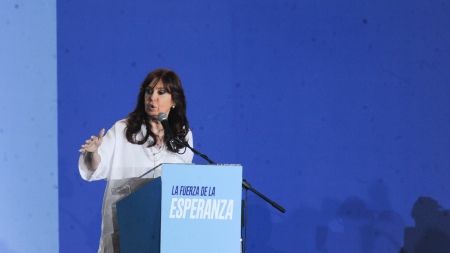The 2022 World Cup starts this Sunday (20) in Qatar, and the expectations of Brazilian fans only increase with the possibility of winning the sixth championship. The Brazilian team will only debut on Thursday (24), at 4 pm (Brasília time), in a match against Serbia, at the Lusail Iconic Stadium, in the city of Lusail, located on the north coast, 24 kilometers from the center of the capital, Doha.
In Brazil, it will still be business hours and millions of Brazilians will be at work, but an agreement between employers and employees can make life easier for those who don’t want to miss a second of the selection on the field. Match days are not considered holidays or optional points, however, the employer can consider the cultural importance of the event and make some adjustments so that everyone can take a break and watch the matches, says the Federation of Commerce of Goods, Services and Tourism of the State of São Paulo (FecomercioSP).
FecomercioSP advises the company to take into account the cultural importance of the event and reflect on the impacts that its decision may have on the work environment. For the entity’s specialists, priority should be given to the good relationship between employee and employer, although the latter is not obliged to release the employee to watch the games.
“The employer will only release the workers, if he so wishes, and settle this with the employees themselves. The Consolidation of Labor Laws (CLT) does not specifically regulate this issue. Therefore, everything depends on the will of the employer. Of course, as we all love football, companies are making arrangements to release employees to watch the World Cup games. However, this depends on the agreement that the company makes with its employees”, says FecomercioSP’s legal advisor, José Eduardo Pastore, a lawyer and consultant in the field of labor relations.
For workers who do not like football, other rules can be adopted, which must meet business objectives and not generate discrimination, clarifies the entity.
According to FecomercioSP, employers have to negotiate in advance how the company will work on the days of the Brazilian team’s games. “That everything be settled beforehand, informing whether the game schedules will simply be given to the employees, whether there will be any compensation, or even if all this will be within the hours bank – or other rules”, says the lawyer.
According to Pastore, the second important guideline is that the company always respects the eight-hour working day, with a maximum of two hours of overtime per day, as set out in the Federal Constitution. “Regardless of what the company is going to settle with the employees, the important thing is to observe the working day, including breaks, in the case of four- or six-hour days. All of this, as said, must be negotiated beforehand, in accordance with the principles of good faith and transparency.”
The novelty that applies in this situation is that employees who remain at the company after normal working hours to follow the games (if they start within their working hours, but extend beyond them), this period will not be considered time available of the employer.
“The CLT no longer considers leisure time, even within the employee’s premises – after the end of the working day – as available to the employer. Thus, private activities, such as religious practices, rest, leisure, study, food, social activities and personal hygiene, among others, even if carried out on the premises of the companies, before or after the beginning (or the end) of the daily workday, do not require overtime. However, it is worth mentioning, as long as there is no imposition by the employer”, added Pastore.
Private sector
Businessman Antonio Dominguez, owner of a foam cutting shop in Brás, the district that concentrates the textile trade in the capital of São Paulo, said that, in the two games of the first phase, which take place at 4 pm, he will dismiss the ten employees half an hour earlier, without having to compensate for hours not worked later. “On the day when the game takes place at 1 pm, I’ll put the game on the computer screen so we can watch it together and also to observe how the movement of customers and surrounding stores is. In the other phases of the competition, I will still decide how it will be.”
As for Filipe Ferraz, who runs a marketing digital with a team of 25 people, in Minas Gerais, said that, on game day, the staff will work in a home office?? At least during the game period, in the afternoon. “We are going to adopt the hour bank model, being able to compensate before or after the games. However, as we serve customers throughout the national territory, we will put a small team on duty to attend to eventual emergencies, since not everyone will completely stop their activities. activities,” he said.
Despite the importance of the World Cup for most Brazilians, the obligations related to the employment contract must not be disrespected by workers. Consequently, unjustified absences and delays, among other situations, when there are no prior agreements with the employer, are liable to punishment.
Public service
THE Ordinance 9.763/2022from the Ministry of Economy, provides guidelines for bodies and entities of the direct federal, autarchic and foundational public administration, on working hours during the days when the Brazilian soccer team is playing in the Qatar Cup.
By ordinance, public agents can close the work two hours before the time of the games in Brazil. On the 24th and 28th, when the departures will be at 4 pm, the office may be closed at 2 pm. On Monday (28), Brazil will play against Switzerland at 1 pm, and the work may end at 11 am. The norm also establishes the possibility that, when there are games starting at 12:00, there will be no office hours.
However, it will be up to the directors of bodies and entities to ensure the full preservation and operation of services considered essential.
The hours not worked due to the early closing of the working hours must be compensated by public agents in the period from December 1, 2022 to May 31, 2023.
Capitals
In the capital of the country, Brasilia, the government of the Federal District defined, in concierge, how will be the days of matches in Brazil. According to the schedule, on November 24 and December 2, working hours will be from 8:00 am to 2:00 pm. On November 28, an optional point was declared.
In São Paulo, the Decree No. 67,255dated 11/10/2022, determined that São Paulo servers will be able to work until 2 pm on game days at 4 pm and until 11 am on game days at 1 pm.
In Minas Gerais, a decree provides that, on days when there will be a game at 4 pm, the workload of public servants will have a workload of six hours, and must be completed between 7 am and 3 pm. On the day with a game at 13:00, and the working hours will be four hours, to be fulfilled between 7:00 and 12:00.
Essential essential services of public interest, such as hospitals, for example, will have normal hours on match days.
Brazil in the Cup
In the first phase of the competition, Brazil enters the field at 4 pm on November 24, against the Serbia team. On the 28th, the team faces Switzerland, starting at 1 pm. The last game of the first phase will be on December 2nd, at 4 pm, against the Cameroon team.
If the selection advances, it is possible that it will play another five days, which could be in the round of 16 stages, on December 5th or 6th, at 4 pm; quarterfinals, on the 9th or 10th of December, at 12h; and in the semifinal, on the 13th or 14th, at 4 pm. There is also the game that defines third place in the competition, on the 17th, at 12h, and the final, on the 18th, also at 12h.















